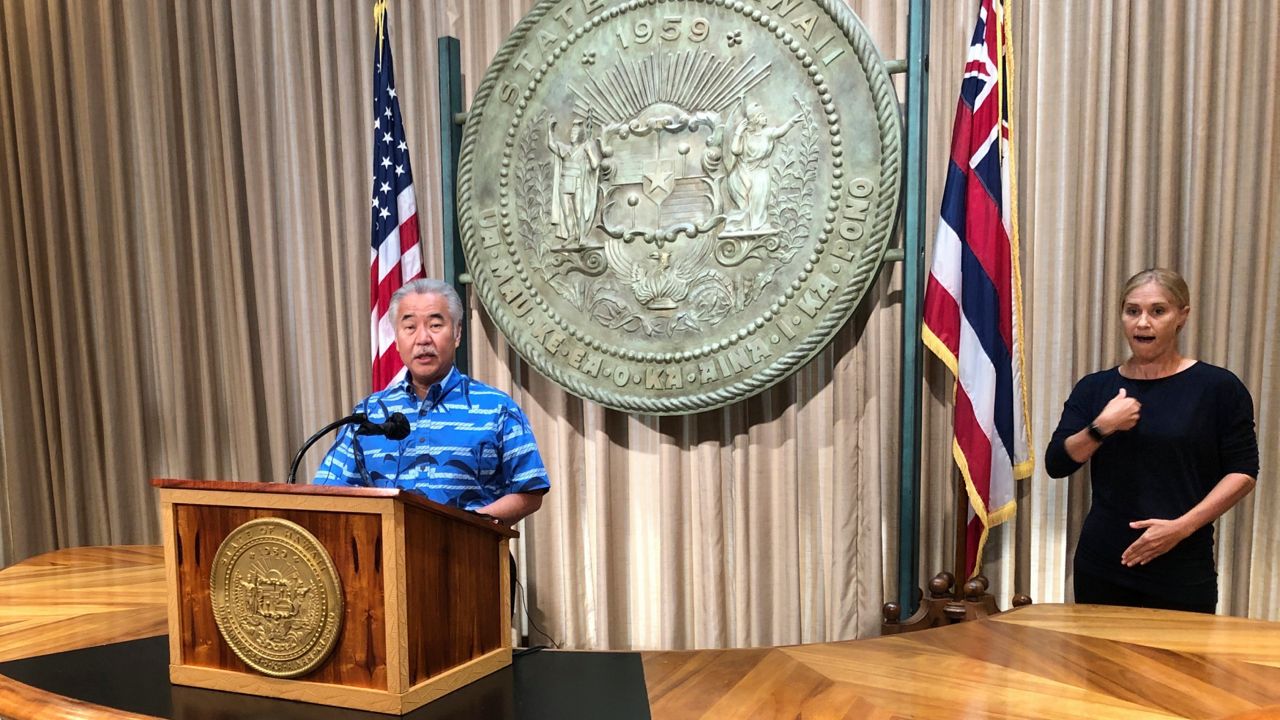Gov. David Ige signed an executive order on Tuesday protecting reproductive health care services in Hawaii.
The executive order will protect reproductive rights by not cooperating with states that try to prosecute women who get an abortion in Hawaii or with states that try to sanction medical professionals who provide abortions in Hawaii.
The governor’s action comes in the wake of the U.S. Supreme Court’s decision on Dobbs v. Jackson Women’s Health Organization, which overturned the 1973 decision from Roe v. Wade that guaranteed a constitutional right to abortion.
More than a dozen states banned or severely restricted abortion access. Some of the most restrictive states have adopted policies where they impose criminal liability on patients and doctors or revoke medical licenses of doctors for abortions that take place outside of their states.
Gov. Ige said on Tuesday during a news conference that Hawaii would not assist states that try to prosecute patients or doctors.
“We will not cooperate with any other state that tries to prosecute women who receive abortions in Hawaii, and we will not cooperate with any other state that tries to sanction medical professionals who provide abortion in Hawaii,” said Ige.
Along with residents who receive reproductive health care, the executive order protects anyone who comes to Hawaii to get an abortion.
“Since this [Supreme Court] decision, [I] have taken care of a few patients who have come from Texas or Georgia or the states that have restrictions,” said Dr. Reni Soon, an obstetrician gynecologist and abortion provider in Hawaii, during the news conference.
The governor said Hawaii would not provide information regarding abortions to other states.
“Under this executive order, departments and agencies under my authority shall not provide any information, including medical records, data or billing, to any other state seeking to impose penalties related to reproductive health services in Hawaii,” said Ige.
However, the executive order has a clause that says it won’t provide medical records unless required by law or by order of a court. The governor said Hawaii would fight in court states that require medical records to be turned over.
“They certainly would have to file an action in court in order for us to respond, and obviously we would have the opportunity in court to state why we would not believe that we would be providing that information,” said Ige.
To protect medical professionals, the governor said he had directed the Department of Commerce and Consumer Affairs to work with the boards of professional licensure to ensure that doctors who perform abortions in Hawaii won’t have their medical licenses revoked or be disciplined.
The executive order will continue after Ige’s term ends, unless it is superseded or repealed.
“Abortion is health care,” said Soon. “The major medical and public health organizations across the country recognize the importance of abortion access and improving overall health outcomes for all those who become pregnant and their families. Abortion is a decision that is made by one in four pregnancy capable people in this country.”
In 1970, Hawaii became the first state in the U.S. to decriminalize abortion through an act passed by the state legislature.
Michelle Broder Van Dyke covers the Hawaiian Islands for Spectrum News Hawaii.



